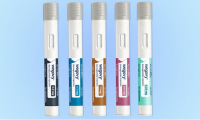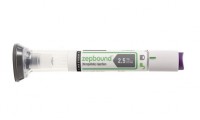-
FDA approves study of Versameb’s mRNA therapy in urinary incontinence
- Source: drugdu
- 170
- November 20, 2023
-
Kite and Arcellx expand strategic collaboration
- Source: drugdu
- 155
- November 20, 2023
-
IU researchers receive $5 million grant to improve care for adolescents with opioid use disorder
- Source: drugdu
- 97
- November 16, 2023
-
Orphelia pushes boundaries with regulatory barriers for pediatric indications
- Source: drugdu
- 90
- November 16, 2023
-
Takeda’s enzyme replacement therapy approved by FDA for rare blood clotting disorder
- Source: drugdu
- 93
- November 16, 2023
-
Novo Nordisk says Wegovy can help heart disease patients—and not just because it produces weight loss
- Source: drugdu
- 95
- November 15, 2023
-
Valneva’s chikungunya vaccine approved by FDA for adults at increased exposure risk
- Source: drugdu
- 94
- November 14, 2023
-
FDA Approves Takeda’s Treatment for Rare Blood Clotting Disorder
- Source: drugdu
- 96
- November 13, 2023
-
BioNTech acquires right to Biotheus’ bispecific antibody candidate in deal worth over $1bn
- Source: drugdu
- 100
- November 10, 2023
-
FDA Approves Eli Lilly Weight Drug, Now Set to Compete Against Novo’s Wegovy
- Source: drugdu
- 101
- November 10, 2023
your submission has already been received.
OK
Subscribe
Please enter a valid Email address!
Submit
The most relevant industry news & insight will be sent to you every two weeks.













